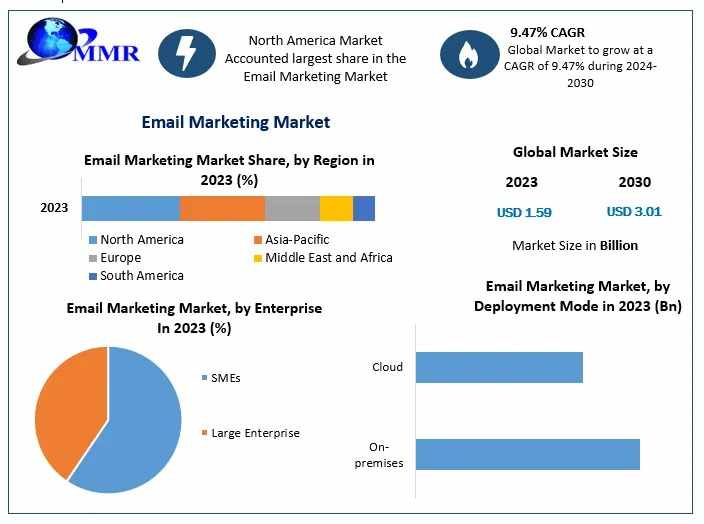
DevOps Market Definition and Overview
DevOps Market, a fusion of "development" and "operations," is a collaborative approach that integrates software development and IT operations to enhance the efficiency and quality of software delivery. By automating and streamlining processes, DevOps enables organizations to deploy applications and services more rapidly and reliably, fostering innovation and improving customer satisfaction.
Market Growth Drivers and Opportunities
Several key factors are propelling the expansion of the DevOps market:
Accelerated Software Delivery: The increasing demand for faster time-to-market for applications is driving organizations to adopt DevOps practices. By automating workflows and fostering collaboration between development and operations teams, DevOps reduces deployment times and enhances product quality.
Cloud Adoption: The widespread adoption of cloud technologies has provided a scalable and flexible infrastructure that supports DevOps initiatives. Cloud platforms offer tools and environments that facilitate continuous integration and continuous deployment (CI/CD), essential components of DevOps practices.
Technological Advancements: Innovations such as containerization and microservices architecture have complemented DevOps methodologies, allowing for modular development and efficient resource utilization. These technologies enable organizations to manage complex applications more effectively.
Emphasis on Operational Agility: In a rapidly changing market landscape, businesses are prioritizing operational agility to respond swiftly to customer needs and competitive pressures. DevOps practices enhance organizational agility by promoting iterative development and continuous feedback loops.
Internet of Things (IoT) Integration: The proliferation of IoT devices necessitates robust and scalable software solutions. DevOps provides the framework to manage the development and deployment of IoT applications efficiently, ensuring seamless integration and performance.
Segmentation Analysis
The DevOps Market is segmented based on deployment models, organization size, industry verticals, and regions.
1. Deployment Models:
Public Cloud: Organizations are increasingly leveraging public cloud services to host DevOps tools and applications due to their scalability, cost-effectiveness, and ease of access. Public cloud platforms provide a conducive environment for implementing DevOps practices without significant upfront infrastructure investments.
Private Cloud: Enterprises with stringent security and compliance requirements opt for private cloud deployments. This model offers enhanced control over data and resources, making it suitable for industries such as finance and healthcare.
Hybrid Cloud: Combining the benefits of both public and private clouds, hybrid deployments allow organizations to manage sensitive data in private environments while utilizing public cloud resources for less critical operations. This flexibility supports diverse DevOps strategies.
2. Organization Size:
Large Enterprises: With extensive IT infrastructures, large enterprises adopt DevOps to enhance coordination between development and operations teams, leading to improved efficiency and reduced time-to-market for products and services.
Small and Medium-sized Enterprises (SMEs): SMEs are increasingly embracing DevOps to remain competitive. The adoption of cloud-based DevOps tools offers these organizations scalable solutions without the need for substantial capital expenditure.
3. Industry Verticals:
Information Technology (IT) and Telecommunications: This sector leads in DevOps adoption, utilizing it to manage complex software deployments and maintain robust network services.
Banking, Financial Services, and Insurance (BFSI): Financial institutions implement DevOps to accelerate the development of secure and compliant financial applications, enhancing customer experiences and operational efficiency.
Healthcare: The healthcare industry employs DevOps to develop and deploy applications that improve patient care, data management, and regulatory compliance.
Retail: Retailers utilize DevOps to enhance e-commerce platforms, supply chain management, and customer engagement tools, ensuring a seamless shopping experience.
Manufacturing: The manufacturing sector adopts DevOps to streamline operations, implement automation, and manage IoT-enabled devices within smart factories.
Competitive Landscape
The DevOps market is characterized by the presence of several key players striving to innovate and capture market share. Notable companies include:
Amazon Web Services (AWS): AWS offers a suite of DevOps tools and services that enable organizations to automate and streamline their software development and deployment processes.
Microsoft Corporation: Through its Azure platform, Microsoft provides comprehensive DevOps solutions, including Azure DevOps Services, facilitating collaboration and continuous delivery.
Google LLC: Google Cloud Platform offers DevOps tools that support CI/CD, infrastructure as code, and monitoring, assisting organizations in building and deploying scalable applications.
IBM Corporation: IBM's DevOps solutions encompass a range of tools and services designed to accelerate software delivery and enhance collaboration between development and operations teams.
Red Hat, Inc.: Known for its open-source solutions, Red Hat provides DevOps platforms that enable automation, containerization, and efficient application management.
Conclusion
The global DevOps market is on a dynamic growth trajectory, driven by the increasing demand for accelerated software delivery, widespread cloud adoption, and the need for operational agility across industries. As organizations continue to prioritize digital transformation and customer-centric strategies, the adoption of DevOps practices is set to expand, solidifying its role as a cornerstone of modern software development and deployment.


















Write a comment ...